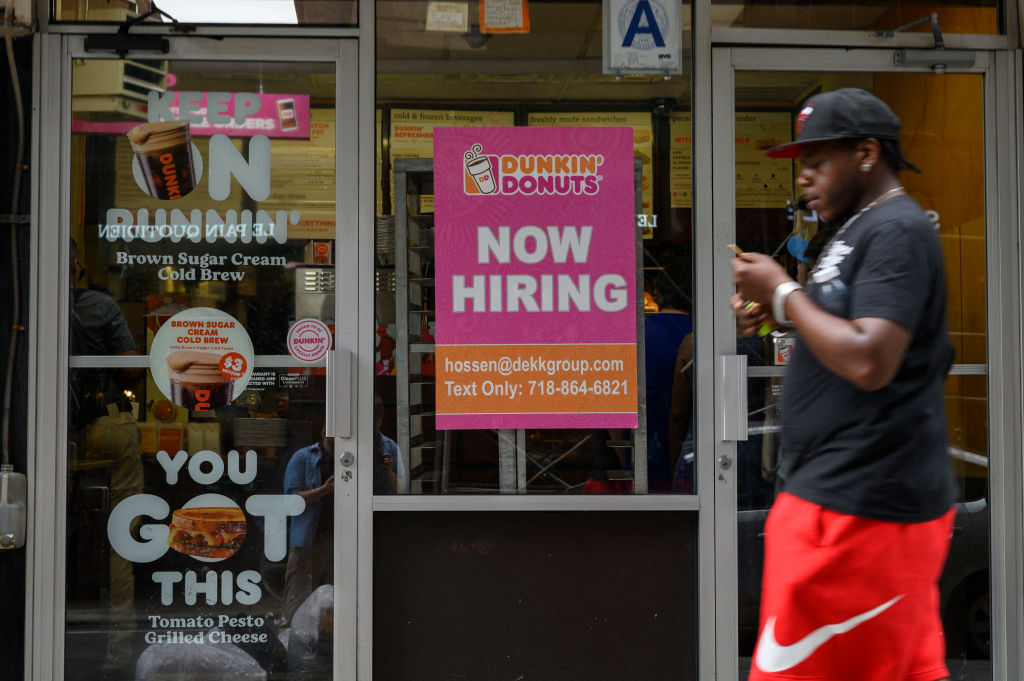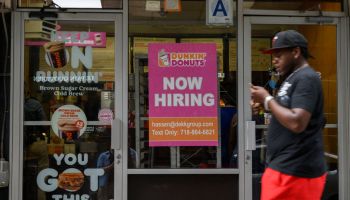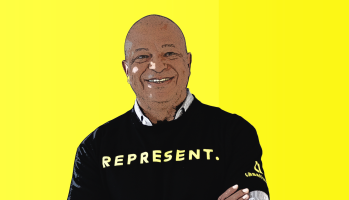
Source: ANGELA WEISS / Getty
The Black unemployment dropped in June, which seems like a cause to celebrate. Economic growth and improved labor outcomes are positive improvements. But understanding how the country is rebounding and where people stand financially requires looking beyond the headlines.
And while inflation and rising costs have generated concerns, some have suggested that unemployment would need to rise to contain inflation. In mid-June, former Treasury secretary Larry Summers argued that unemployment would need to rise above five percent overall for five years to address inflation.
As Black unemployment steadily remains twice that national average, Summers proposed solution will have even more dire consequences for Black families and workers. But groups like the Groundwork Collaborative advocate for a more direct approach to addressing skyrocketing prices, ending corporate price gouging, and not sacrificing workers.
In response to the economy adding 372,000 jobs, Dr. Rakeen Mabud, Groundwork Collaborative’s chief economist and managing director of policy, said that policymakers must consider thoughtful solutions to addressing inflation that does not jeopardize job growth. She said the government should move forward with necessary care, climate and housing investments to bring down costs and strengthen the economy.
“While the labor market has experienced robust job growth in recent months, we must reject calls to push the economy into a recession and put millions out of work in the name of combating inflation,” Mabud said. “Doing so would be especially catastrophic for Black workers, who face nearly double the unemployment rate of white workers even in the best of times.”
Dr. Alex Camardelle, director of workforce policy for the Joint Center for Political and Economic Studies, spoke at an Equity First series about the enduring barriers for Black workers and communities despite the allegedly improved economic conditions.
“You may hear things about the promising labor market and how well it’s doing, but you often don’t hear disaggregated by race and ethnicity,” Camardelle explained. “So we stand in that gap and make sure that we’re talking about what these numbers mean for Black folks.”
In a prior interview with NewsOne, Camardelle echoed a similar sentiment as Mabud regarding the mere return to pre-pandemic levels of unemployment.
“The urgency around social policy that benefits black workers disproportionately is off the table,” Camardelle said. “It’s almost non-existent.”
Camardelle mentioned some positive pushes by the Biden-Harris administration should not be overlooked, like efforts to reduce high-speed internet costs. In early May, the administration announced the Affordable Connectivity Program, which would reduce the cost of internet for certain households. But such programs aren’t enough to ensure Black workers and their families have what they need.
“At the same time, we were hoping that the urgency of the pandemic and its effects on the labor market would come in some bigger, bolder pushes around paid leave, raising the minimum wage, which has not changed in over a decade,” he explained.
Camardelle also encouraged people to look beyond the job report numbers. There’s much more to the story than simply the number of jobs added.
“The employment report also lacks information about the type of jobs people are moving into,” he said. “While people are employed, are they able to provide for their basic household expenses and needs?”
Housing, food, child care and health care expenses are all things bearing down on the average work that must be considered when evaluating employment and people’s ability to cover the basics. But Camardelle also noted that part of the problem is policymakers and economists talking about people without directly talking to them.
“These policymakers need to hear from low-wage workers themselves; they don’t need to be talking to economists as frequently. They need to talk to workers in their community on the frontlines, not just as voters, but also just keeping their communities and their families afloat,” he explained. “Creating vibrant communities where people can live and work that’s just how you create thriving economies.”
SEE ALSO:
Inflation Reaches New Highs As Biden Administration Urges Congressional Action
Black Unemployment Declines But More Economic Policy Interventions Are Needed was originally published on newsone.com















